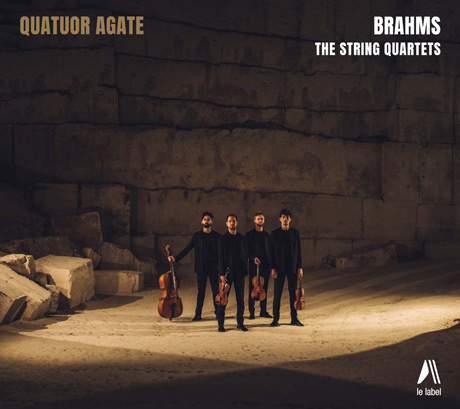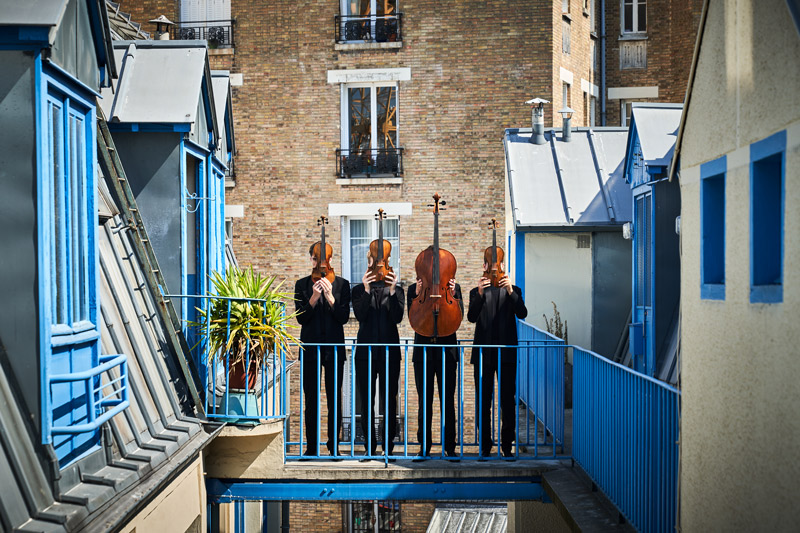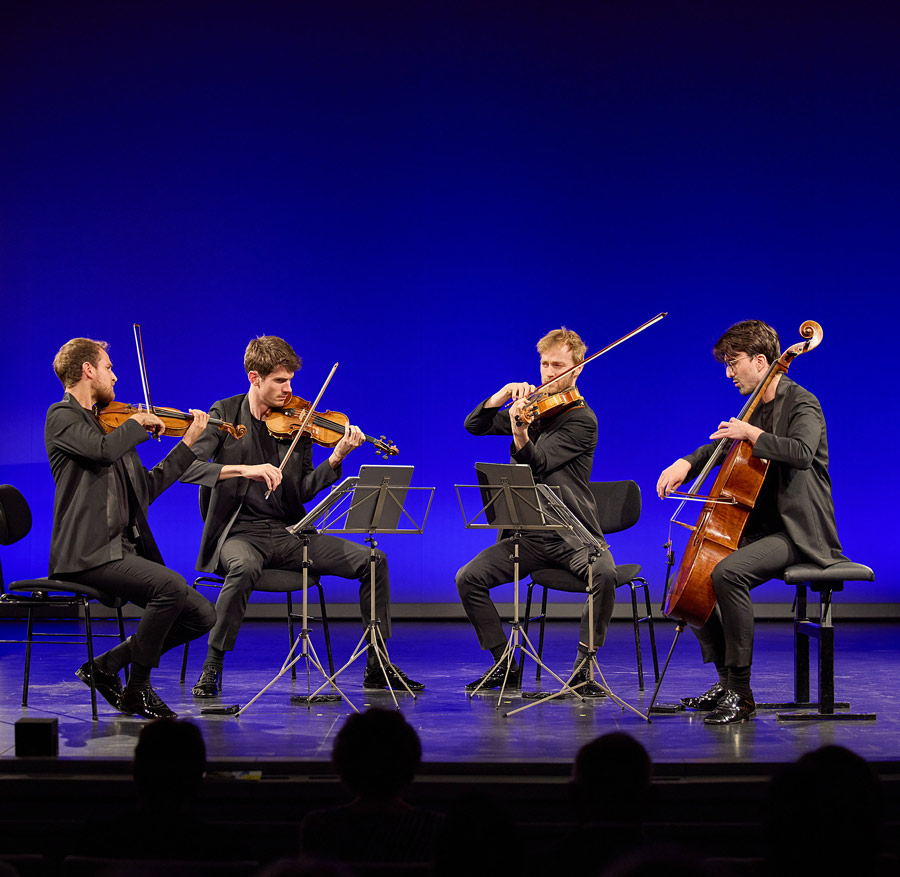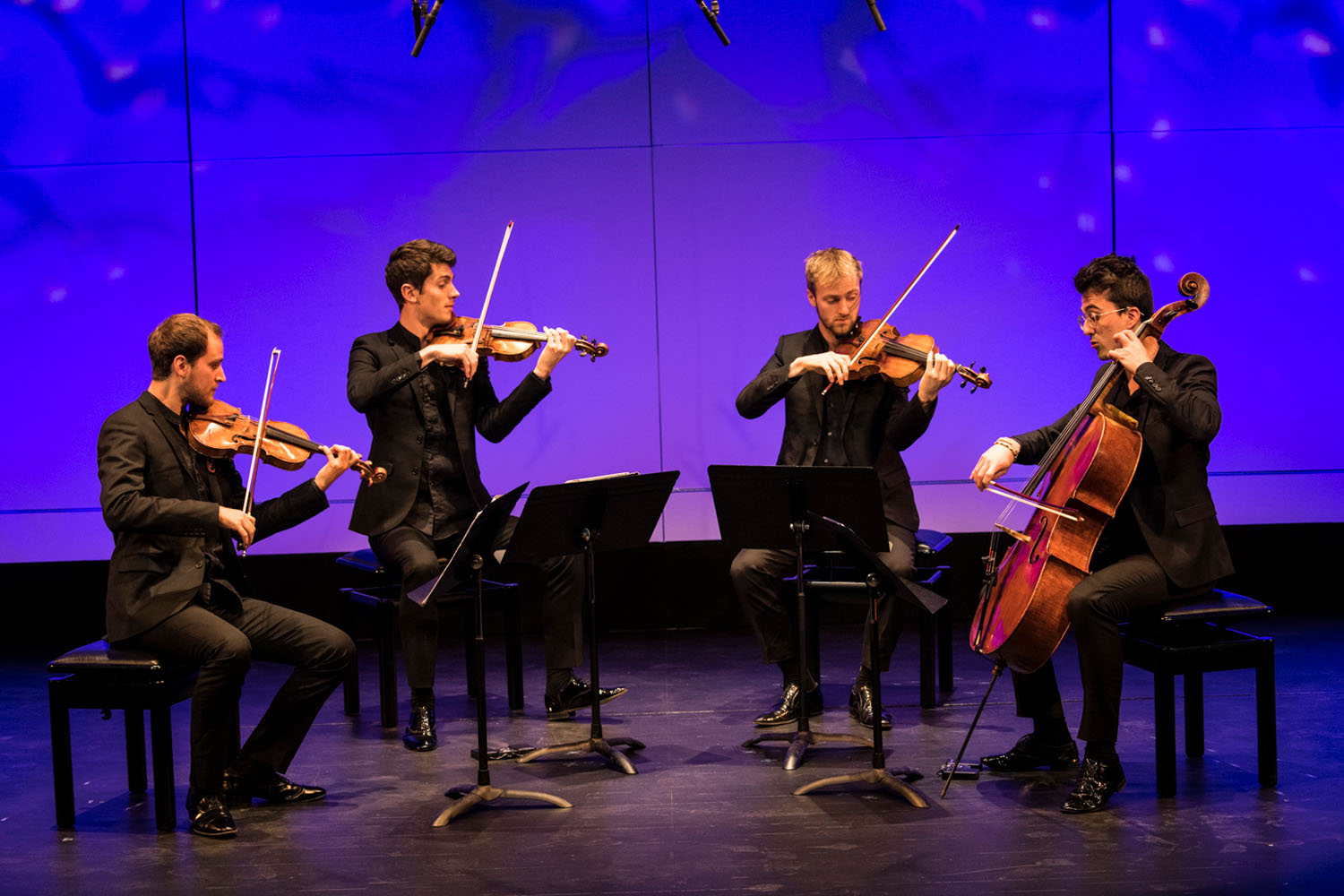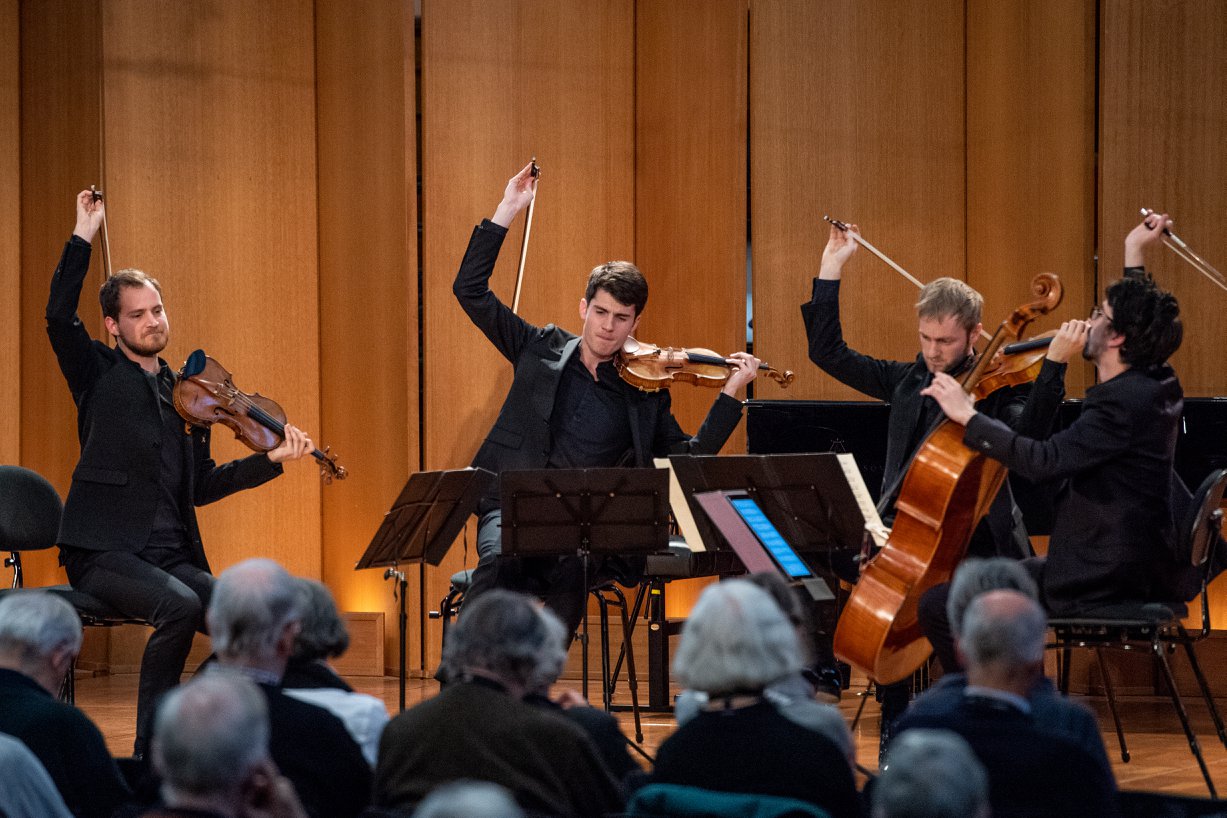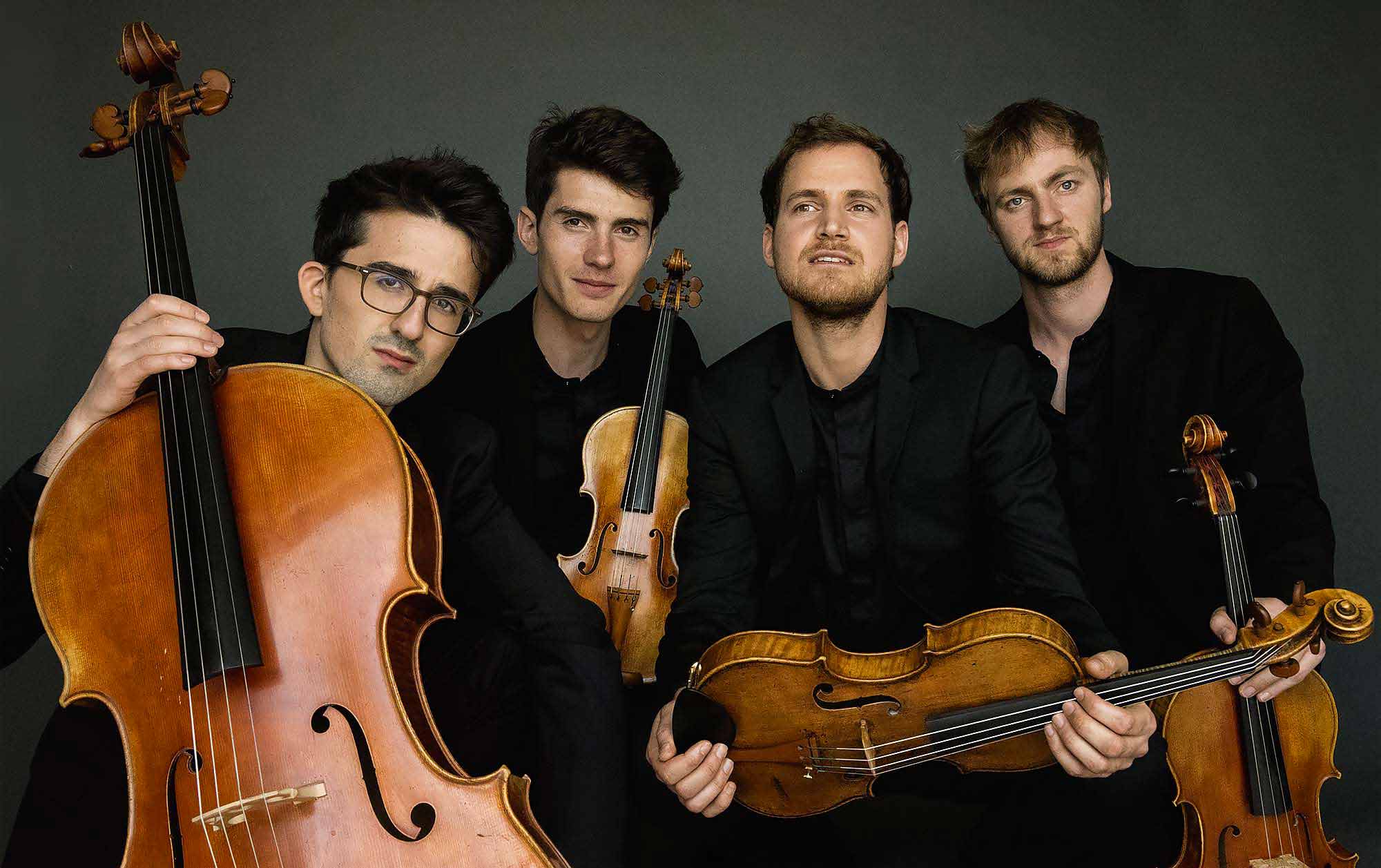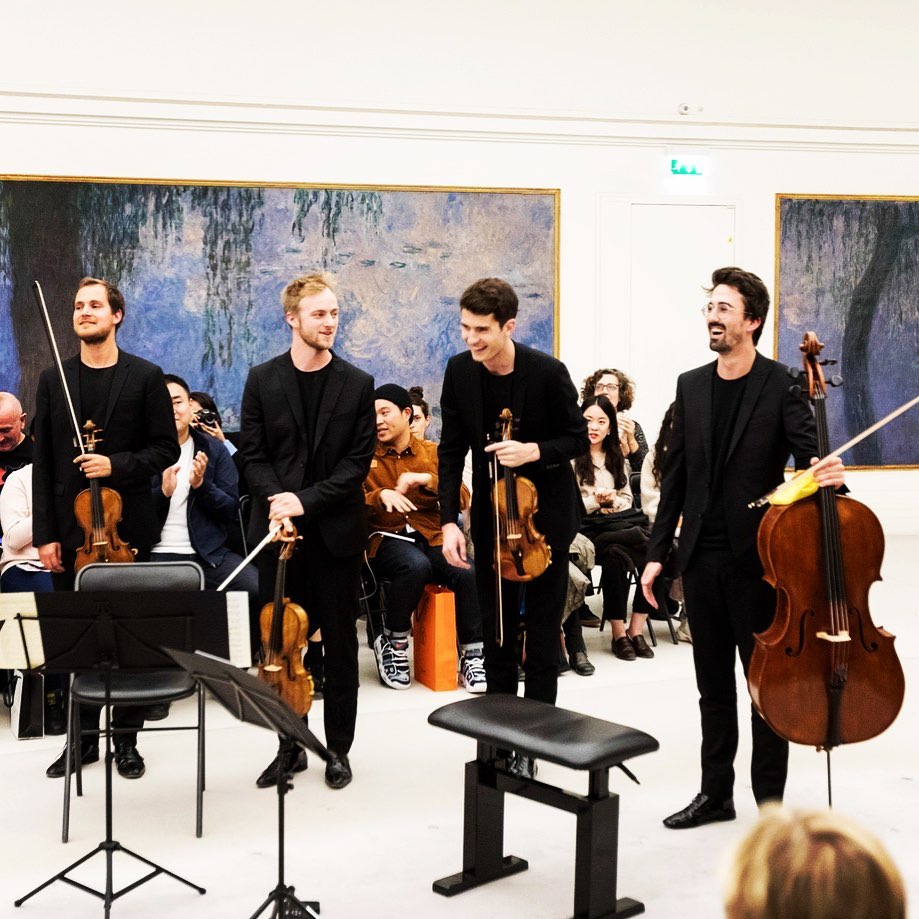Dear readers,
The origins of the Quatuor Agate
lie in a concert that never took place.
In October 2015, its four members were living in Berlin. Adrien, Thomas, Raphaël and Simon – all more or less recently transplanted from France – were making the most of the ever-changing city’s vibrant cultural life, especially its eclectic musical scene.
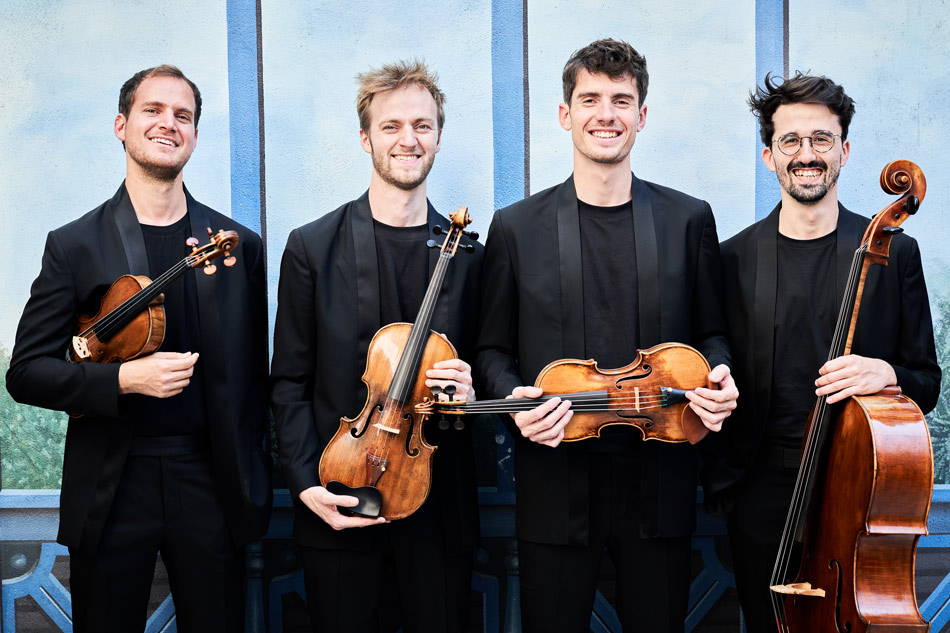
Raphaël, a viola player, received an invitation to perform in Corsica that winter. He discussed it with the three other members of the future Quatuor Agate.
They were already good friends, but the ensemble was yet to take formal shape, since each player was making his own way as a musician.
They decided unanimously to accept the invitation, enthused as much by the idea of performing Schubert and Mozart in a church in the mountains of Corsica
as by the prospect of escaping to the sunny Mediterranean from dark and chilly Berlin.
They started rehearsing and the weeks went by. Meanwhile, in Corsica, the planned concert faded gently into oblivion.
When Raphaël tried to get in touch with the organisers, either the phone just rang or he went onto voicemail.
In the end, realising the situation was futile, he informed the other players that the concert was off.
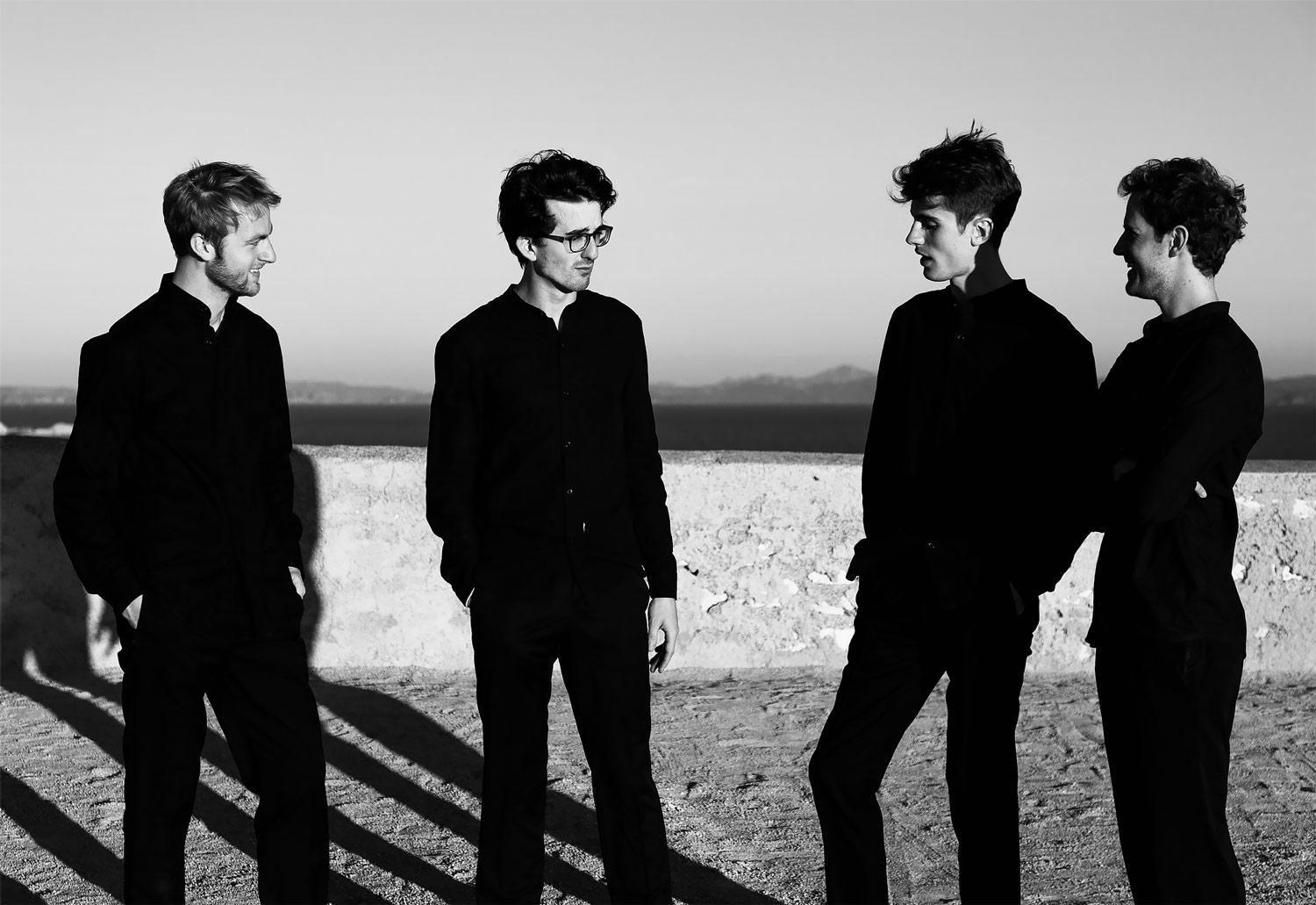
But the phantom concert gave birth to something.
The players had been obliged to give their ensemble a name – shared with a semi-precious stone and Johannes Brahms’ second love, Agathe von Siebold – and all the rehearsing had sparked a passion for exploring the quartet repertoire.
The following spring they met the pedagogue Eberhard Feltz, who worked with them at length, acquainting them with the dialectic of Haydn, the harmonic complexity of Bartók, and the metaphysical power of Beethoven.
They came to realise that if they really wanted to do justice to the art of the quartet (while still having time to go and see a film now and then), they would have to leave the orchestral academies that had brought them to Berlin in the first place.
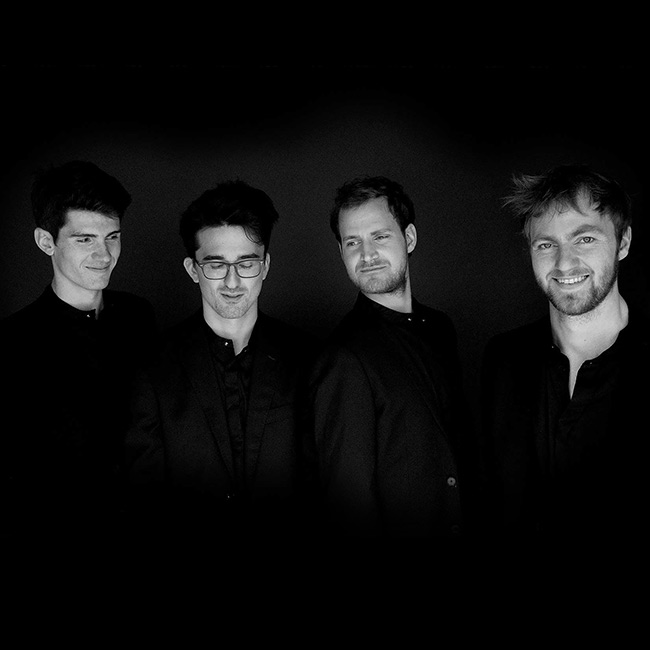
Once their decision had been made, the Quatuor Agate could embark on its first concert tour.
Where else but in Corsica?
Since then the quartet has toured several continents and appeared at festivals in such places as Verbier, Venice, Melbourne and Montreal.
The players are based in Paris, where, savouring the experience of becoming more than the sum of their parts, they continue to develop as a musical ensemble.
